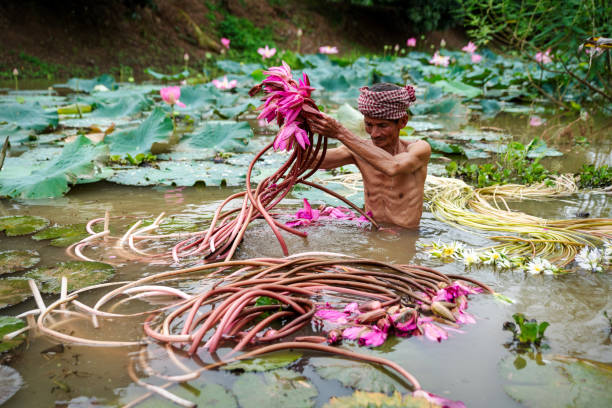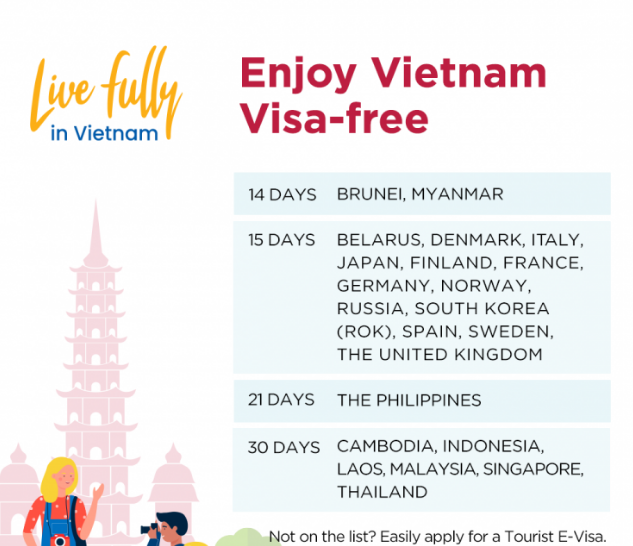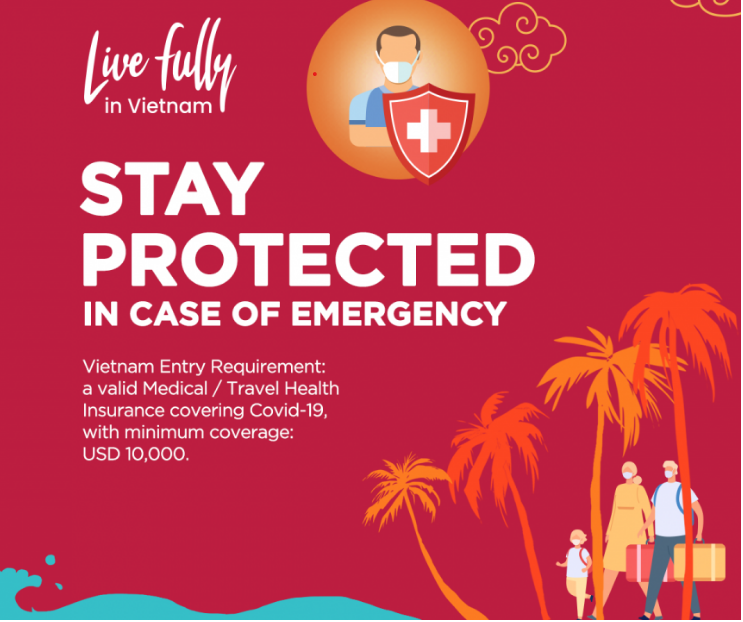
Can I travel to Vietnam right now?
All of Vietnam's destinations are available for business. There is no need for self-isolation.
The following are key points from the new guidelines: Entry is now permitted with a visa and travel insurance.
You must bring the following items with you when you arrive:
-
Having medical or travel insurance that covers COVID-19 treatment with a minimum liability of USD10,000.
-
Must make a health declaration before entry and install/use the Vietnam health declaration application (PC-COVID), implement measures to prevent and control the pandemic as prescribed during the stay in Vietnam.

VISA EXEMPT
Visitors from the countries listed above can enter without a visa and remain for the specified number of days.
-
ASIA
Brunei, Myanmar - 14 days.
Japan, South Korea (ROK) - 15 days.
The Philippines - 21 days.
Cambodia, Indonesia, Laos, Malaysia, Singapore, Thailand - 30 days. -
EUROPE
Belarus, Denmark, Italy, Finland, France, Germany, Norway, Russia, Spain, Sweden, and The United Kingdom - 15 days.
REQUIREMENT OF A VISA
To obtain a 30-day tourist E-visa, simply fill out an online application. The charge for an e-visa is $25, and it takes three days to process. To print your visa, you will receive a code by email.
Health hotlines and screening centers
If you experience COVID-19 symptoms or suspect you've been exposed, call Vietnam's health hotline at 1900 3228 right once.
To test and diagnose COVID-19, Vietnam has designated 323 authorized testing institutions. The complete list is available here
Criteria in terms of health
The following is a guideline from the Ministry of Health for incoming travelers:
- There is no need for quarantine.
- Within 10 days of the admission date: If you have symptoms of SARS-CoV-2 infection (fever; cough; sore throat; runny nose, stuffy nose; body aches, fatigue, chills; decreased or lost taste; decreased or lost sense of smell; pain, headache; diarrhea; difficulty breathing; respiratory inflammation...), you should seek medical attention immediately.
These are based on Ministry of Health recommendations.
How to Get a Vietnam e-Visa:
Step 1: Gather all of the necessary materials:
- One 4x6 passport photo, sans glasses, in.jpg format with a white background.
- One.jpg photo of your passport data page.
- A passport must be valid for at least six months before it can be used.
- Your temporary address in Vietnam as well as points of entry and exit are listed here.
- Payment can be made with a debit or credit card.
Step 2: Go to and click on 'E-visa Issuance,' then on the link for 'Outside Vietnam foreigners.'
Step 3: Fill out the form completely and upload your.jpg images (passport data page and passport photo). Fill out and submit the form.
Step 4: Pay the $25 e-Visa cost. Take note of the document code.
5th step: Your e-Visa application should be processed within three working days. If you don't have your e-Visa, you can search for it at this website.
Step 6: Look for your e-Visa online using the document code. For further security, download and print the e-Visa twice.
 TIP: Travelers with an e-Visa do not need to queue at Visa on Arrival counters and can proceed straight to immigration counters at their point of entry.
TIP: Travelers with an e-Visa do not need to queue at Visa on Arrival counters and can proceed straight to immigration counters at their point of entry.
Insurance is required:
- Purchase COVID-19 treatment medical/travel insurance with a minimum coverage of $10,000. Typically, this costs around USD 40.
Pre-departure health checks
Domestic travel:
- Tourists must continue to self-monitor their health for a period of ten days after entering the country. If you have SARS-COV-2 symptoms, you should go to the nearest medical facility as soon as possible.
- Follow the 4K message from the Ministry of Health: khau trang (face masks), khu khuan (disinfection), khoang cach (distance), khong tu tap (no gatherings).
- Until the latest update, domestic flying restrictions have been eased. Please keep in mind, however, that these requirements may have resulted in changes to the needs of various destinations.
International travel: These must adhere to the rules and regulations set forth by the country to which you will return.
Travelers' health and safety precautions
Visitors to Vietnam are advised to take reasonable precautions against COVID-19.
The World Health Organization recommends the following basic safety precautions for you and your loved ones:
- If you have a fever or a cough, you should avoid traveling. If you develop a fever, cough, or difficulty breathing, call 911 and tell them about your recent travels.
- Maintain your social aloofness. Keep a meter or more away from anyone who is sneezing, coughing, or has a fever.
- Hands should be washed with soap and running water on a frequent basis. You can also frequently spray your hands with an alcohol-based hand sanitizer.
- When you cough or sneeze, cover your mouth and nose with a tissue. Tissues that have been soiled should be disposed away.
- Avoid coming into contact with any live animals. If you come into contact with live animals or animal products in marketplaces, wash your hands thoroughly with soap and water.
- Only eat foods that have been thoroughly cooked. Ensure that all of your meals, particularly animal proteins and dairy products, are completely cooked and prepared in a sanitary atmosphere.
- Single-use masks should be thrown away. If you use a single-use mask, make sure it covers your nose and mouth, that you don't touch it, and that you wash your hands after removing it.
"Any travelers with signs of the virus, such as fever, cough, or difficulty breathing, should contact Vietnam's health hotline at 1900 3228 as soon as possible."
Vietnam has designated 323 testing centers as approved to conduct COVID-19 illness testing and diagnosis. The complete list is available here.
Please check our updated travel alert for a complete description of the COVID-19 situation in Vietnam, as well as daily updates."
Vietnam's National Administration of Tourism produced the above data. The Vietnam government reserves the right to amend the guidelines at any moment based on circumstances.